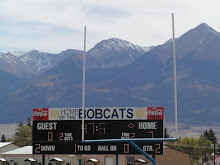
The political arguments over the federal debt levels have been raging in Washington for decades. We have heard political leaders preach responsibly and then pass bills that spend needlessly. It seems to me the United States public has resigned itself to these wasted promises and accepted the status quo. If all the debt problems stayed in Washington, accepting the status quo might be an acceptable path for the public to take because eventually Washington will not be able to spend any more. However, the debt crises is striking much closer to citizen’s homes and not staying in Washington.
States across the nation are facing an immediate pension shortfall in the next few years. All 50 states pension budget gap, between benefits promised and assets to pay, total a staggering $1 Trillion dollars in December 2008. Making the predicament even more worrisome is the shortfall has gotten worse since 2008 but the actual figures have not been calculated yet. The recession has hit state pension plans hard for a variety of reasons but it is clear if adjustments are not made soon, entire states may have to file for bankruptcy which would add to the federal debt load and hurt many states credit ratings.
The question I had was how states had shortfalls when most states are not legally allowed to borrow money like the federal government? States have the pesky problem of balancing the budget on a yearly basis unlike Washington but I could not find were the money was going. I found the problem lies in municipal employees. For decades public-sector jobs have seen huge increases in salaries, benefits and pensions compared to private sector jobs. Increases in all of these areas are not a problem by itself but the spending balloons when unions get involved with government bureaucracy.
37% of state government workers are unionized compared to 7% private sector workers in 2008. Public unions have held above 30% of the work force for 25 years and in the process have pushed harder and harder for more benefits, greater job security and larger pensions. This has created expensive city budgets that have come under greater stress over the last few years. For example, 61% of spending in Philadelphia is spent on the work force and the benefits that go along with those workers. The system is becoming hard to hold up but how much do government employees make compared to private workers?
Government employees earn 21% more than private workers and have a 24% greater chance of receiving full health care benefits. 84% of state and local workers have defined-benefit retirement plans compared to 21% of private workers. Many might feel that it is not a big deal but the problem is states and cities can no longer afford such extravagant retirement plans. In 2008, Vallejo, California went into bankruptcy because of the labor costs and retirement plans and still has not gotten out of bankruptcy court due to public unions striking and refusing to give up pensions. Many more cites are about to follow. Harrisburg, Pennsylvania is trying to make a $2 million payment by March 1 due to union worker costs.
Some cities and states are making the adjustments required to save budgets but union workers are not taking cuts quietly. Many public workers go on strike and shut down services to cities and states. These strikes are devastating to local economies because many public works have a monopoly on services leaving the citizens that pay their salaries at the mercy of the strikers and government officials trying to balance the budget have to give in due to the fact new workers cannot be hired quickly enough to get basic services running again.
So that leaves the rest of us to pay for the shortfall so our state or city does not go belly up. Not only do we pay government workers more money then private sector jobs, but we get less productivity as well. It is also very hard to reform workers to get more productivity due to union contracts that retain workers for decades even if they do little to no work. After decades of low productivity the rest of us pay for their fat tax free retirement pensions they did not have contribute to. The private sector has to pay higher taxes and cut services we pay workers to take care of. It is a vicious circle of fewer services for more money. No wonder Greece is going bankrupt for the same reasons. Everyone one in the private sector better get out our check books because we have to pay public sector retirement out of our savings. Also, Municipal bond holders might want to watch out.
Sources:
2/18/10 The Wall Street Journal “Municipal threat”
12/10/09 The Economist, “Public sector unions, welcome to the real world”
2/20/10 The Economist, “State-Level Pensions: Promises to keep.

No comments:
Post a Comment